A weed is a plant in an undesired place. Weeds can often compete with crop plants for nutrients and resources and/or harbour and spread pests or diseases which infect or degrade the quality of crops. Although many weeds have undesirable consequences they can also provide a key ecological role.
Weed Biology

Common weed problems in oilseed rape
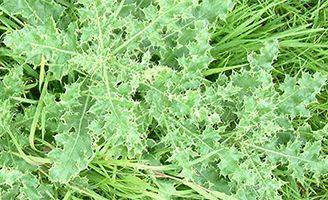
Thistles in oilseed rape
Thistles are a common weed throughout the UK, growing up to 150cm in height.
Read more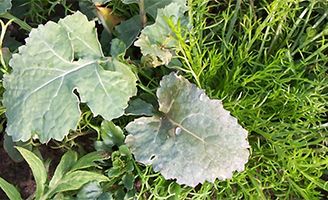
Mayweed in oilseed rape
Mayweeds are common and high profile annual or hardy-annual composite weeds.
Read more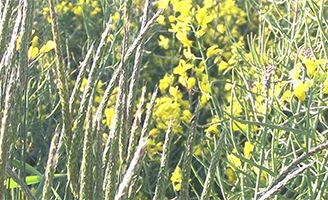
Blackgrass in oilseed rape
Blackgrass is the most important grassweed infesting cereal and oilseed rape rotations in the UK.
Read more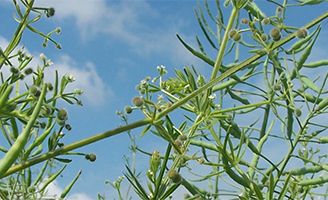
Cleavers in oilseed rape
Cleavers have long caused problems to oilseed rape growers, due to the competitive nature of the weed, and the way it can grow across the canopy late in the season.
Read more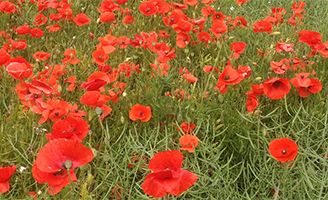
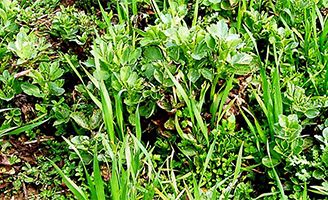
Common weed problems in cereals
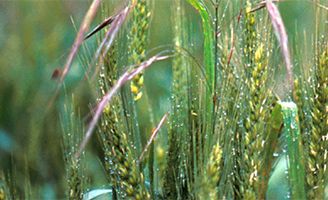
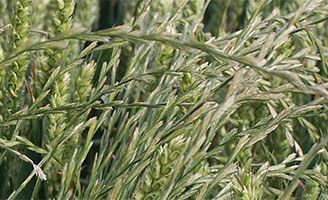
Ryegrass
Ryegrass distribution is more widespread and significant where grass leys form part of the rotation.
Read more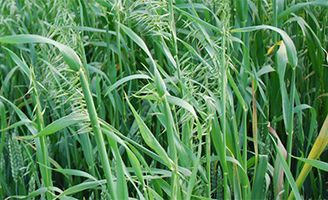
Wild Oats
Wild oats are distributed from Yorkshire to Devon, and the intense arable areas of south and east Scotland.
Read more
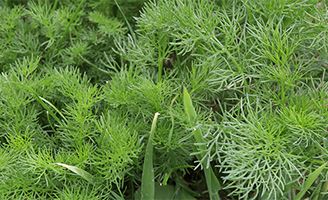
Mayweed
There are several widely distributed species including Scented Mayweed, Scentless Mayweed and Pineappleweed.
Read more
Volunteer Beans
Volunteer beans compete with establishing winter cereals in the autumn. Volunteer beans can also cause problems for contact graminicides as large bean volunteers can shade grassweeds and limit contact.
Read more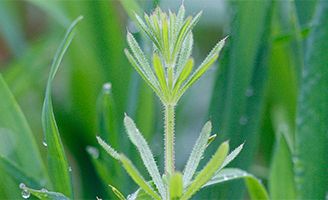

Poppy
The common poppy is a broad-leaved weed that can be problematic in cereals and winter oilseed rape, competing for nutrients and impacting yield.
Read more
Groundsel
Though small, groundsel can grow in large numbers across fields and hence are a very visible weed within crops.
Read MoreCommon weed problems in grassland
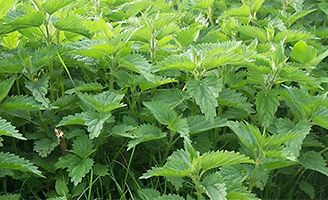
Nettles
Grass yield / grazing is lost mainly by competition from nettles for nutrients, light and moisture, but also from stock refusing to graze close to nettles.
Read more
Thistles
Thistles compete with grass for space, light, nutrients and water, and they are unpalatable to stock.
Read more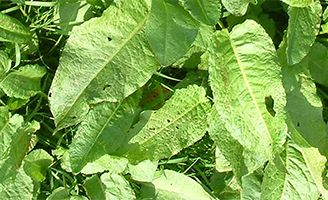
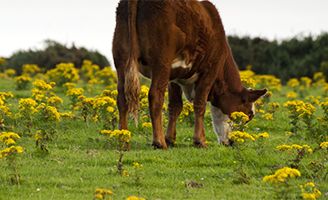
Ragwort
Ragwort poses a serious threat to livestock health. Left unchecked, it can quickly spread and reduce available grazing.
Read more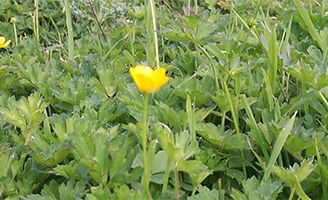
Buttercup
Creeping buttercup is often a severe problem in horse paddocks, where close grazing tends to open the sward.
Read more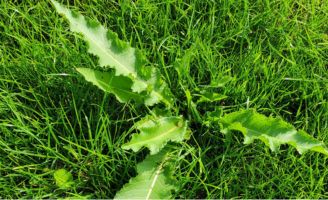
Curled docks
Curled docks thrive in intensively used and highly fertilised grassland and produce up to 40,000 seeds.
Read more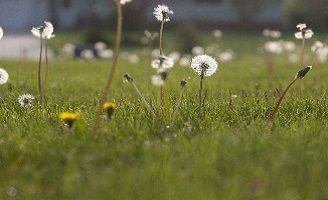
Dandelions
Dandelion is a perennial plant that has a deep taproot and are commonly found where fields are overgrazed, and soil fertility is poor
Read more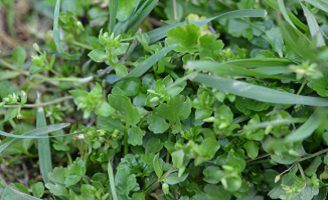
Common chickweed
Chickweed, if left uncontrolled, will affect the productivity of newly sown leys or a pastures.
Read more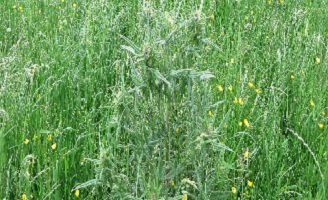
Spear thistle
Spear thistle can be found in both newly sown leys and established grassland.
Read more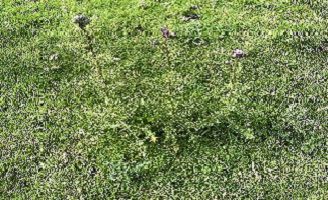
Creeping thistle
Creeping thistle is a perennial that grows from seed or from root sections in the soil.
Read moreOther common weed problems

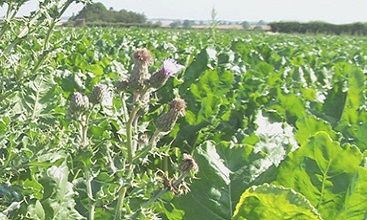
Thistles in sugar beet
Yield loss and harvesting difficulties can be caused in sugar beet by infestations of sow-thistle and creeping thistle.
Read more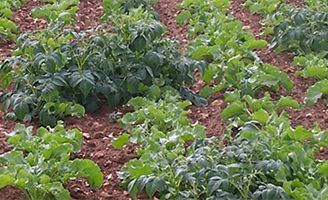
Volunteer potatoes
An integrated approach to the management and reduction of volunteer potatoes is particularly important where less competitive crops, such as sugar beet, are part of the rotation.
Read more
Annual meadow grass
Annual meadow grass can be found in both winter and spring crops. These plants compete with the crop for nutrients and water and can delay ripening because it increases the moisture content of the straw and interferes with harvest.
Read more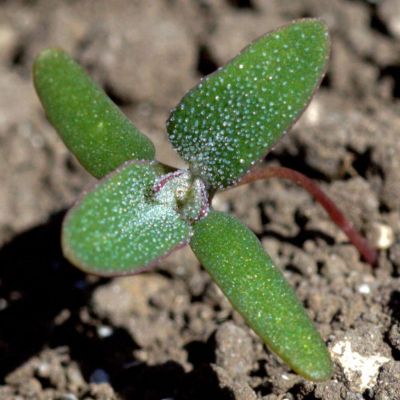
Fat hen
Mature plants are large, fleshy and robust and are competitive with the crop. In spring planted crops they grow rapidly and can smother spring cereals, sugar beet and maize crops.
Read more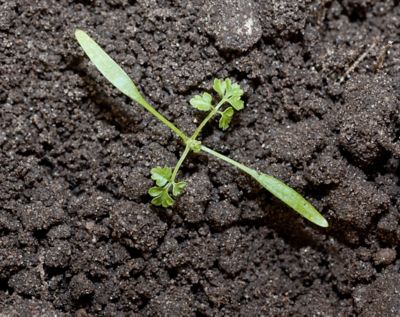
Bur chervil
Bur chervil can grow into large, robust plants that cause difficulties at harvest. There are limited choices of product for controlling bur chervil.
Read more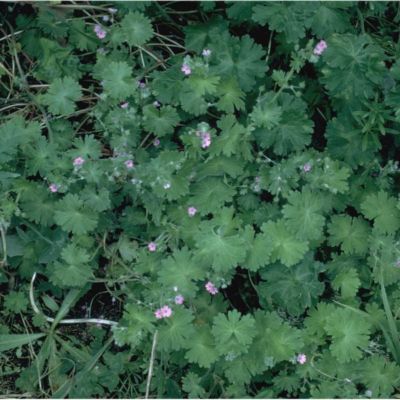
Cranesbill
Mature plants can be prostrate or upright in growth and are competitive with the crop. In spring planted crops they grow rapidly and can smother cereals, oilseed rape and maize crops.
Read more